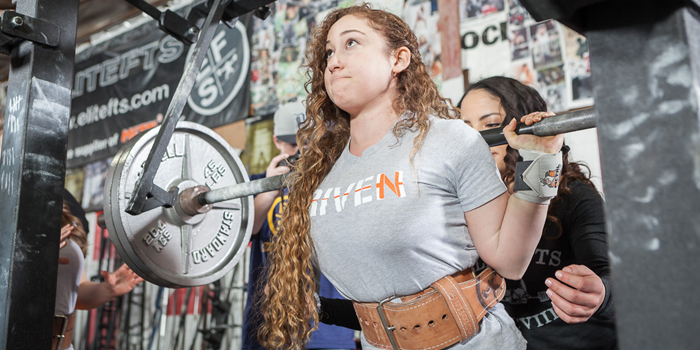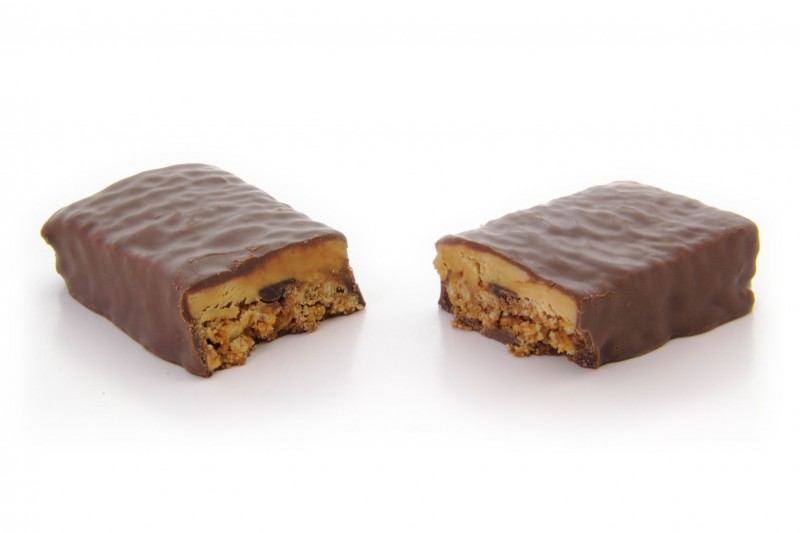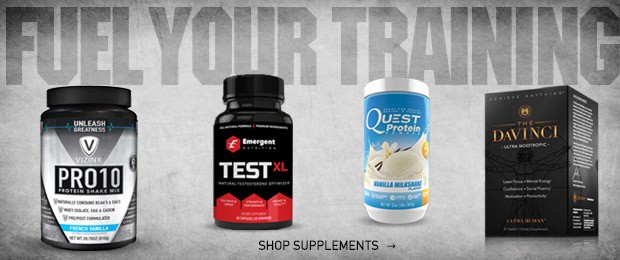
For those that don’t know me personally, I should let you in on a secret: I eat like a child. Actually, I eat worse. Although I’m pretty close in size and stature to my competitive days, I’ll admit my eating patterns have significantly regressed to the dark-side since trading a life of strength coaching for a life of lab work.
If I wrote down everything I ate in a day, there would probably be three items on the list: protein bars, peanut butter, and broccoli. I know, I have a problem. So, I’ve decided to break up with bars. Why? Honestly, it’s not because I wanted to lose weight, lean out, or anything of that nature. Instead, it’s because I want to know what will happen. I know the science and I know why I shouldn't eat them in excess. And because I'm inspired by my new adventure, I thought I would go over some of pros and cons of having bars in your diet repertoire.
Power Bars: Macros, Micros, and Volume
The protein bar market is catered around selling bars to people looking to get a good amount of protein in a meal without having to deal with meal preparation. In the bar world, there are energy bars, meal replacement bars, and protein bars. Meal replacement bars are the ones with balanced macronutrient ratios that are intended to supplement the macro and micronutrients of a meal in bar form. Energy bars are a bit different and have the purpose of providing lots of quick energy in carbohydrate form (normally), to consumers.
RECIPE: Protein Packed Pumpkin Pancakes
However, protein bars differ from both in that they tend to be lower in carbohydrates, higher in protein, and have fewer micronutrients (vitamins and minerals). Your typical protein bar will ring in at around 190-250 kcals of energy and between 10 and 32 grams of protein. As someone who hates to meal prep, I’m all about that. However, I’ll be the first to admit that a 50-gram protein bar won’t fill you up the same way that three ounces of chicken, 30 grams of blackberries, and a cup of broccoli will (if you were wondering, both have about 200 calories, 25 grams of protein, and 20 grams of carbs). So to summarize, a protein bar is a bar-sized meal that is high in protein. Pretty straightforward, but it's their ingredients that make it complicated when it comes to figuring out if they are good for you.
Photo credit: Torian Dixon © 123RF.com
Protein Bar Cons: Processing, Sweeteners, and Digestion
I’m a firm believer that protein bars are really just processed candy bars, which moonlight as a healthy choice for those looking to grab a protein-rich treat on the go. Most protein bars are filled with processed proteins like whey and casein. These processed proteins taste pretty horrible, so manufacturers add sugar or sweeteners to improve their taste. There are a couple of issues with this. First off, when the bars become filled with 20 grams or more of sugar, they start to become pretty similar to candy bars. Actually, some candy bars and protein bars are pretty similar in their calorie count per gram. When your protein bar becomes a candy bar, you can bet you might have an issue dropping weight if you are crushing a couple each day.
As someone who has eaten five a day (don’t judge me), I’ve avoided more than 100 grams of protein bar sugar a day by eating the ones with the artificial sweeteners, but this can be problematic too. These “low-cal” options contain sugar alcohols, which can cause upset stomachs, bloating, and diarrhea. So, when you add the flavor to protein bars you end up with a no-win situation: either you buy the ones with full sugar and (possibly) watch your waistline expands with adipose, or you buy the artificial ones and watch your belly expand with gas.
Protein Bar Pros: Convenience, Calories, and Counting
Protein bars are higher in protein than energy bars (duh), so they do a pretty good job at promoting satiety to keep your hunger in check. Protein bars allow you to hit your daily protein requirements without having to meal prep all Sunday and drag around a cooler. In fact, you can keep them in your car since you don’t need to worry about refrigerating them. I can tell you from first-hand experience that a car-contained, slightly melted protein bar makes for a yummy meal. Additionally, when tracking calories, it can be pretty easy to stay on top of your daily calorie intake when eating bars (since they don’t require pre-measuring and messing around with the food scale). So, to people like myself who are always looking for more hours in the day, protein bars are a great way to escape meal prep, track calories, and save time.
Bite-Sized Sum-Up
I think of proteins bars like a lot of things in life: they are great in moderation. However, having spent quite a bit of time overeating them, I’ve decided it's time to part ways with them for a while and discover what that does for my health, body composition, and fitness. I challenge any of you protein bar addicts to do the same, and will update you on the progress next month.











